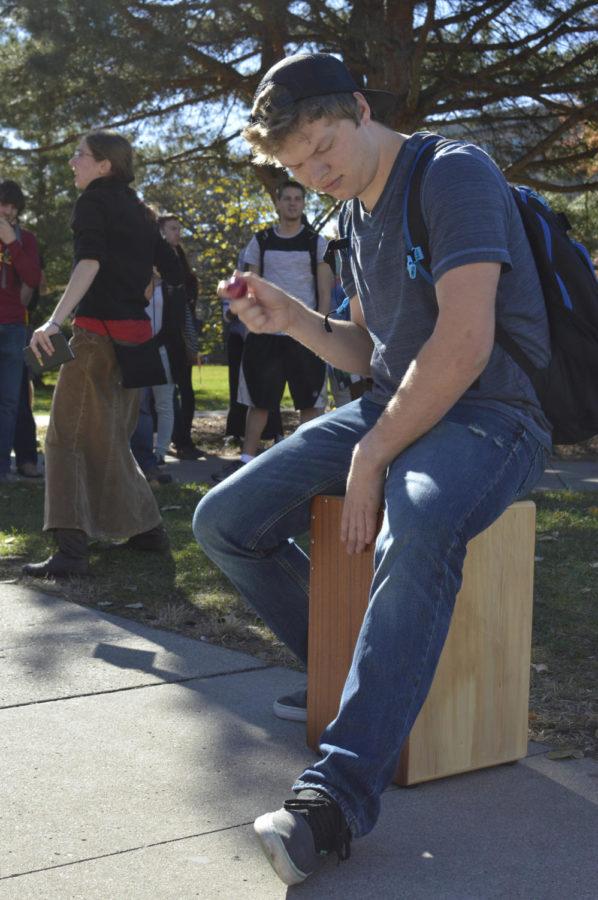Editorial: To use free speech there must be an understanding of free speech
Charlie Coffey/Iowa State Daily
Sister Kirsten preaches in the free speech zone outside Parks Library Nov. 2 while Dallas Nicholson, sophomore in computer science, drums next to her.
December 4, 2015
Look at the words that have been printed on this page, or any page for that matter, and think about how they got there. They did not appear out of pure will or as a result of an elaborate scheme. They exist because living in America guarantees us certain rights, one being the right to speak freely.
That being said, this right takes on an entirely new level of importance during college because real change can occur on campuses, Iowa State’s campus being a prime example. During the past several months, we have watched demonstrations of that right evolve into the raising of awareness on real issues in this country, and that’s an incredibly positive thing.
What is not so positive, however, is the ease with which the use and possession of free speech gets convoluted. Take our free-speech zones, for example.
Iowa State has two designated zones on its campus on which students, faculty and anyone with something to say can share their opinions or views about whatever they please. But the issue has come up time and time again that free speech is not free speech if it is restricted to a zone. The issue drew enough attention that Student Government surmised that adding another zone would alleviate the problem.
But the reality is that the zones are not the problem. It’s the understanding of the zones by students and members of the ISU community that is the real issue. Which is why Student Government made the smart choice by voting 33-2 to ask the university to clarify the language and policies for free speech and free-speech zones in lieu of just adding another zone.
Having locations on campus where individuals can share their views with students and others is a great thing, but no good will come out of them if the understanding of these zones is simply not there.
Student Government Sen. Cole Staudt said it best by saying, “We will be expanding free speech by clarifying the free-speech zones.”
If Student Government had gone the route of adding another physical zone, the progress would have ended there. Adding another location in the hopes of making campus’ free speech more widespread would only have perpetuated the issue which is that people don’t understand what free-speech zones stand for and what they can be used for.
The goal of the free-speech zones, much like this editorial, is to foster a conversation to usher in real change not to shelter passersby from what some may consider “hate speech,” which could have been the result of another zone.
In order to use free speech, there must be a clear understanding of free speech, and this vote is a step in that direction.

















